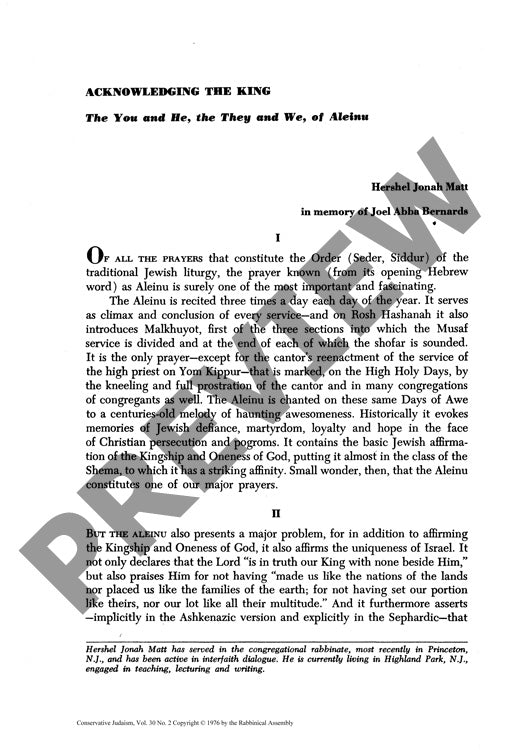Acknowledging the King the You and He Th
Couldn't load pickup availability
Judaism's most significant liturgical text, the Aleinu prayer, embodies a centuries-old tension between particularistic Jewish identity and universal divine sovereignty. When medieval Christians encountered verses describing those who "prostrate themselves to vanity and emptiness," they perceived anti-Christian sentiment, leading to censorship that echoes through modern interfaith relations. Through textual analysis and comparative religious study, this research investigates four fundamental questions: how divine kingship manifests in liturgy, what constitutes authentic worship, who comprises the prayer's "we" and "they," and how religious distinctions evolve over time. The findings reveal that genuine acknowledgment of God's kingship demands both ritual precision and ethical behavior, while Jewish chosenness represents covenantal duty rather than inherent superiority. A threefold solution emerges: restore censored verses to maintain principled opposition to idolatry, expand the prayer's "we" to encompass all monotheists acknowledging YHVH, while preserving distinctive Jewish identity. This framework reconciles the Aleinu's seemingly contradictory elements by positioning Jewish particularity as an ongoing witness role until the messianic age brings universal recognition of divine sovereignty. The methodology combines liturgical scholarship with interfaith theological analysis to illuminate how ancient prayers can address contemporary religious pluralism.

More Information
-
Physical Description
-
Publication Information
Published 1976
ISBN
-
Publication Credits
Hershel Matt

